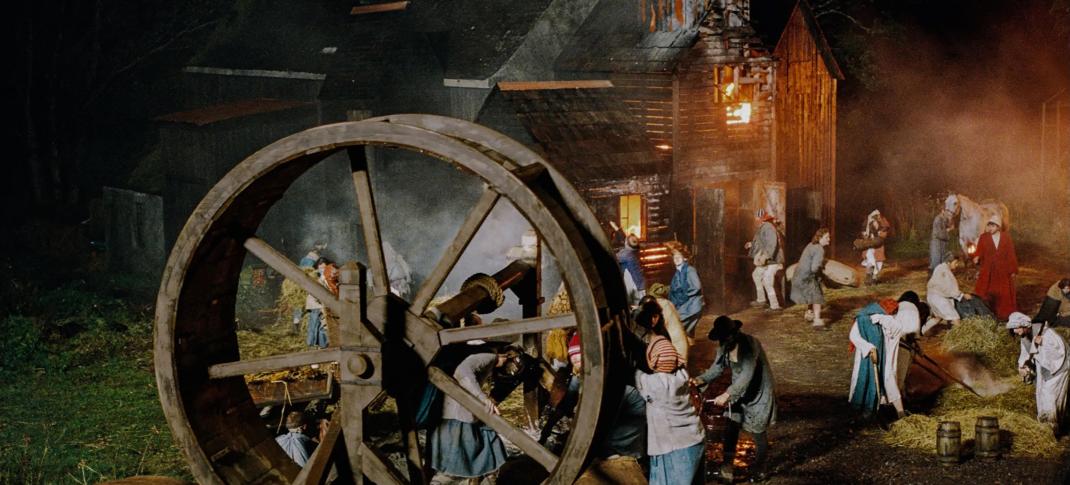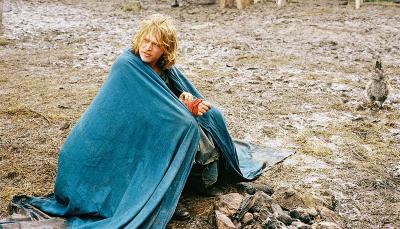Middle-Ages Set 'Harvest' To Debut in Theaters in September

The cast of 'Harvest'
Jaclyn Martinez/Harvest Film Limited
The words "Victorian," "Regency," and "Period Drama" often get used interchangeably despite being two totally different eras and an entire genre of film and television. It happens because most English-speaking period dramas are set in the U.K. during the 1800s, defined by the Regency Era in the early decades and the Victorian Era post-1840. It is a common refrain from period drama lovers that too many shows and films focus on this period and that there are centuries of history often overlooked. However, along with adding diverse voices and characters to period pieces, the 2020s are also bringing in other, much earlier historical eras, such as the new William Tell, set in Switzerland in the 14th century, Firebrand, which focuses on Henry VIII's last wife, instead of his first, second and third ones, and now Harvest, set in Scotland in the mid-1700s.
Harvest focuses on this lesser-known era, marked by the early waves of the agricultural revolution, which displaced thousands of farmers. Referred to as "The Clearances," entire villages of farming families were evicted en masse by their landlords to make way for the early iterations of industrial-scale farming. Houses and fields were bulldozed to create large pastures for large-scale sheep farming, and forests were cut down for the wood to feed the fires that powered steam engineering and to make way for the run rig system. Then, when the towns became overrun with un-and-under-employed crofters, landlords paid for the former tenants to emigrate, many of whom boarded ships for America and the New World.
The film stars Caleb Landry Jones as Walter Thirsk, who arrives in an imaginary village — so remote it has no name other than “the village” — with new landlord Charles Kent (Harry Melling. Kent has inherited the estate that provides the land for the villagers to work via his now-deceased wife. Thirsk, though a villager himself, works for Kent and also loses his wife, placing him apart from his neighbors for being "close" to the man who suddenly runs the joint.
Here's the film's synopsis:
Over seven hallucinatory days, a village with no name, in an undefined time and place, disappears. In Tsangari’s tragicomic take on a Western, townsman-turned-farmer Walter Thirsk and befuddled lord of the manor Charles Kent are childhood friends about to face an invasion from the outside world: the trauma of modernity.
Harvest initially debuted at the Venice Film Festival in 2024, and here is the director's statement from Athina Rachel Tsangari that was distributed with the film's premiere:
With this film, an adaptation of Jim Crace’s novel Harvest, we had the chance to examine the moment when it all began for us — twenty-first-century heirs to a universal story of land loss. To me, Harvest is a film about reckoning. What have we done? Where do we go from here? How can we salvage our soil, the self within the commons? Harvest takes place in a threshold realm, tracing the first ruptures of the industrial “revolution.” And revolution it hasn’t been. An agrarian community is disrupted by three breeds of outsiders: the map-maker, the people on the move, and the company man—all archetypes of shattering change. The future is not part of the story — it will happen offscreen in a world we are not meant to see. There are no heroes. Only imperfect, ordinary folks. I imagined it as a daguerreotype, or its modern equivalent, a Polaroid slowly exposed to twilight.
Landry Jones and Melling co-star alongside Rosy McEwen (Black Mirror), Arinzé Kene (Informer), Thalissa Teixeira (Alice & Jack), and Frank Dillane (Joan). Tsangari directed from a script by Joslyn Barnes, adapting Jim Crace's Booker Prize-nominated novel of the same name.
Harvest will debut in limited release in the U.S. on Sunday, September 29, 2024.




